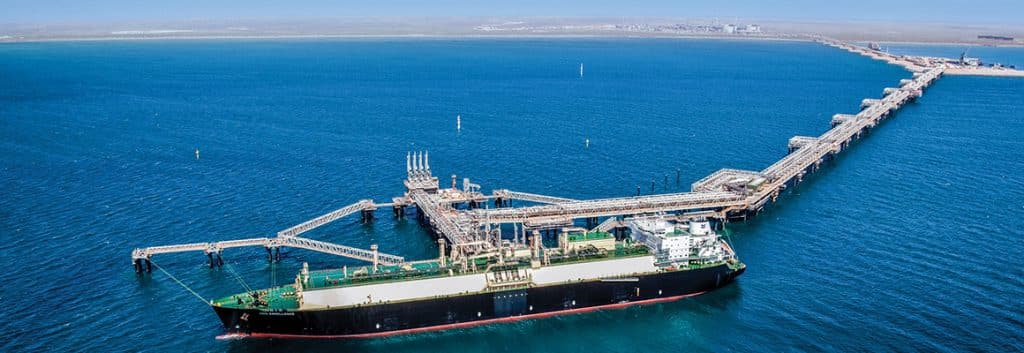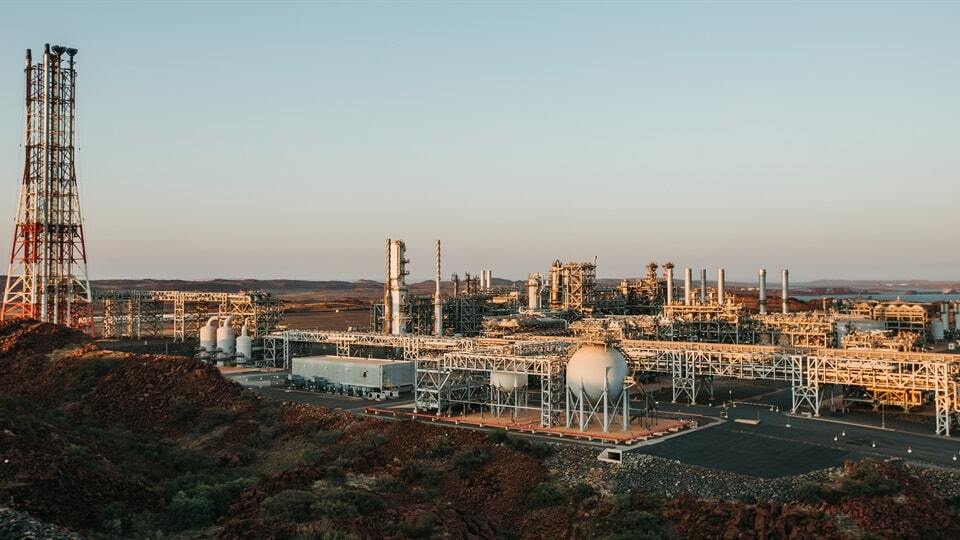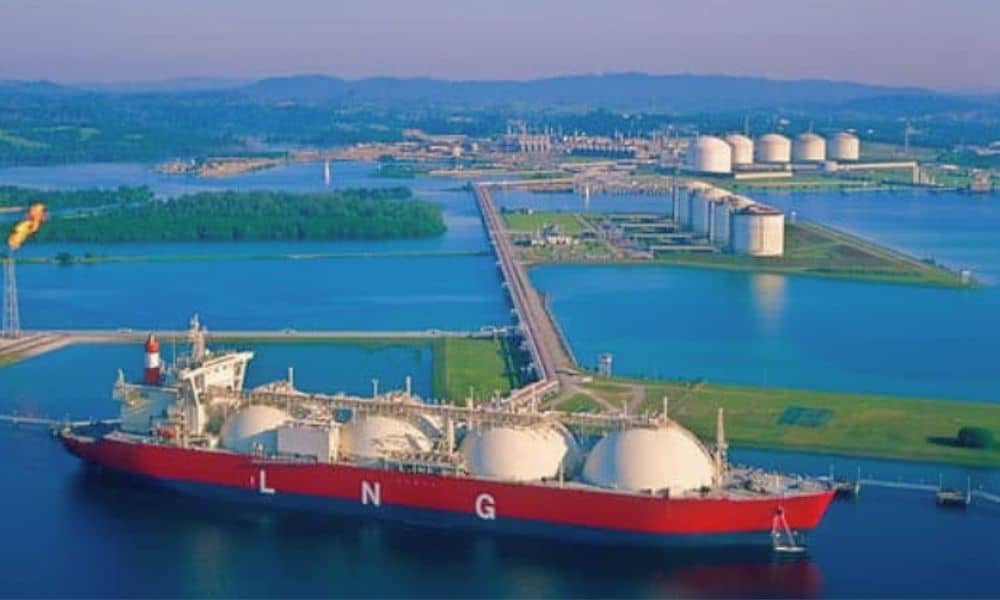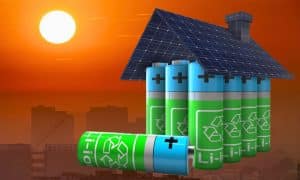The global energy landscape has witnessed a significant shift in recent years, with liquefied natural gas (LNG) emerging as a vital component in meeting the energy demands of nations worldwide. Europe, a key player in this transformation, heavily relies on LNG imports to bolster its energy security and diversify its energy sources. However, recent events like the Australian LNG strike have raised concerns and sent shockwaves through Europe’s energy market.
Are you looking to save money on your electricity bills and reduce your carbon footprint? Solar energy is the perfect solution! Energy Matters can help you get up to 3 FREE quotes from pre-qualified and vetted solar firms in your area.
With Energy Matters, you can be sure you’re getting the best possible deal on solar energy. We only work with reputable solar firms with a proven track record of delivering high-quality solar systems.
Australia's dominance in the global LNG market
Australia’s ascent to becoming a powerhouse in the LNG sector is undeniable. With abundant natural gas reserves, technological expertise, and strategic geographical location, the country has consistently ranked as one of the top LNG exporters. Its natural gas liquefaction projects, located primarily along its western and northern coasts, have become a key supplier for energy-hungry markets in Asia and beyond.
Renewable natural gas (RNG) vs liquefied natural gas LNG
Renewable natural gas (RNG) is a type of natural gas produced from organic waste materials, such as food waste, manure, and landfill gas. It is a cleaner-burning alternative to conventional natural gas, as it produces lower emissions of greenhouse gases.
LNG (liquefied natural gas) is natural gas that has been cooled to a liquid state so that it can be transported more easily. It is a fossil fuel, and its production and combustion also produce greenhouse gas emissions.
Australia is a major producer of both LNG and RNG. The government is currently considering balancing the need to reduce greenhouse gas emissions with the need to continue exporting LNG.
There are a number of factors to consider when comparing RNG and LNG, including their environmental impact, cost, and availability. RNG is a cleaner-burning fuel than LNG but is also more expensive and less available. LNG is a more established fuel but has a higher environmental impact. Learn more: Five things that you didn’t know about renewable gas.
The potential impact of a strike on Australian LNG facilities
Voting has started on whether workers use industrial action in disagreement over compensation and job security at the Gorgon plant in Western Australia and the Wheatstone downstream complex, which are majority-owned by Chevron Corp.
This week, separate negotiations between the employees of a different facility, North West Shelf, and the Australian energy company Woodside Energy Group Ltd. will also continue in an effort to prevent a potential walkout.
A strike on Australian LNG facilities could create significant disruptions across multiple fronts. These facilities encompass liquefaction plants, export terminals, and associated infrastructure critical for the production and export of LNG. The consequences of a strike could include:
Supply Disruption: Australia’s LNG facilities are responsible for a considerable portion of global LNG exports. A strike could reduce production and shipments, causing supply shortages in consuming markets.
Price volatility: Any disruption in the supply of Australian LNG could lead to increased price volatility in global gas markets. Prices could surge as a result of reduced supply availability, impacting both consumers and producers.
Shift in market dynamics: Australia’s LNG exports have shaped global gas market dynamics. A significant disruption could force importing countries to seek alternative sources, potentially leading to trade relationships and market structure changes.
Investor confidence: A prolonged strike could undermine investor confidence in Australia’s LNG sector. This might impact future investments and project development, potentially slowing the industry’s growth.
Geopolitical Implications: The disruption of Australian LNG supplies could have geopolitical implications, particularly if importing nations rely heavily on these imports for energy security.
Tired of being the last to know about updates in the renewable energy world? Missed out on a state rebate or incentive? Looking to find out more about how you can save on your utility bills? Subscribe to Energy Matters’ weekly newsletter and keep updated with Australian and international news, incentives, and offers.
The significance of Australia’s LNG in Europe
Liquefied natural gas (LNG) has become a cornerstone of Europe’s energy strategy due to its cleaner burning properties compared to traditional fossil fuels like coal and oil. As nations strive to reduce their carbon footprint and meet ambitious climate goals outlined in the Paris Agreement, LNG has gained prominence as a bridge fuel, offering lower greenhouse gas emissions when compared to coal-fired power generation.
European policymakers are closely watching the prospect of a strike by workers at Australia’s second-largest liquefied natural gas (LNG) plant. The plant, located in Western Australia, is a major supplier of LNG to Europe, and a strike could disrupt supplies and lead to higher energy prices.
The strike is over pay and working conditions, and whether it will proceed is unclear. However, the walkout threat has already caused European natural gas futures to spike.
Europe is heavily reliant on imported LNG to meet its energy needs. Russia is the continent’s largest gas supplier, but relations between the two have soured in recent years. The Nord Stream 2 gas pipeline, which would have doubled Russian gas supplies to Germany, was recently shelved.
This has left Europe looking for alternative gas sources, and Australia is one of the few countries that can increase its LNG exports. However, a strike at the Western Australia plant would reduce the amount of LNG available to Europe and could lead to higher prices.
Gas prices are already high in Europe, and a strike would only make them worse. This could knock on inflation, which is already rising in the eurozone.
The European Commission is working to reduce the bloc’s reliance on Russian gas, which will take time. In the meantime, Europe is vulnerable to disruptions to LNG supplies.

Impact on European gas prices
The European natural gas market is already under pressure due to the war in Ukraine and the uncertainty surrounding Russian gas supplies. A strike at the Western Australia LNG plant would add to these pressures and could push gas prices even higher.
According to analysts at Goldman Sachs, gas prices could reach €50 per megawatt-hour (MWh) by winter, which would be a significant increase from the current level of around €20/MWh. This would lead to much higher bills for businesses and consumers and could have a negative impact on the European economy.

Investing in renewable alternatives
While LNG plays a vital role in Europe’s energy transition, the continent is simultaneously investing heavily in renewable energy sources. Wind, solar, hydroelectric, and other clean energy technologies are being developed to complement LNG and eventually replace more carbon-intensive energy sources. The Australian strike may prompt European nations to accelerate their renewable energy efforts to reduce reliance on fossil fuels and associated supply chain vulnerabilities.
As the situation unfolds
A disruption in Australian LNG production could trigger a cascade of effects, from supply shortages and price fluctuations to geopolitical realignments. As the situation unfolds, stakeholders across the industry will closely watch to gauge the impact on Australia’s position as a dominant LNG supplier and the subsequent implications for global energy markets.
As Europe continues its transition towards cleaner energy sources, the need for a resilient, diversified, and secure LNG supply chain remains paramount. Strategic partnerships, investments in renewable alternatives, and a proactive approach to energy security will play a pivotal role in safeguarding Europe’s energy future in an evolving global landscape.
Still can’t afford to switch to solar power?
Are you considering getting solar panels but are currently short on funds? You can still invest wisely, and Energy Matters can help you.
Powow and Energy Matters have teamed up to provide consumers with an alternative to switching to solar power and battery storage.
The biggest obstacle to installing solar and battery storage is typically finance. With Powow’s PPA and VPP, our customers will have a $0 upfront option and financial stability in the uncertain energy market.
Get up to 3 obligation-free quotes by getting in touch with us right away. Find out what payment plan options suit your needs and budget!
Check out our page for Powow: Power Purchase Agreement (PPA) and Virtual Power Plant (VPP).













































